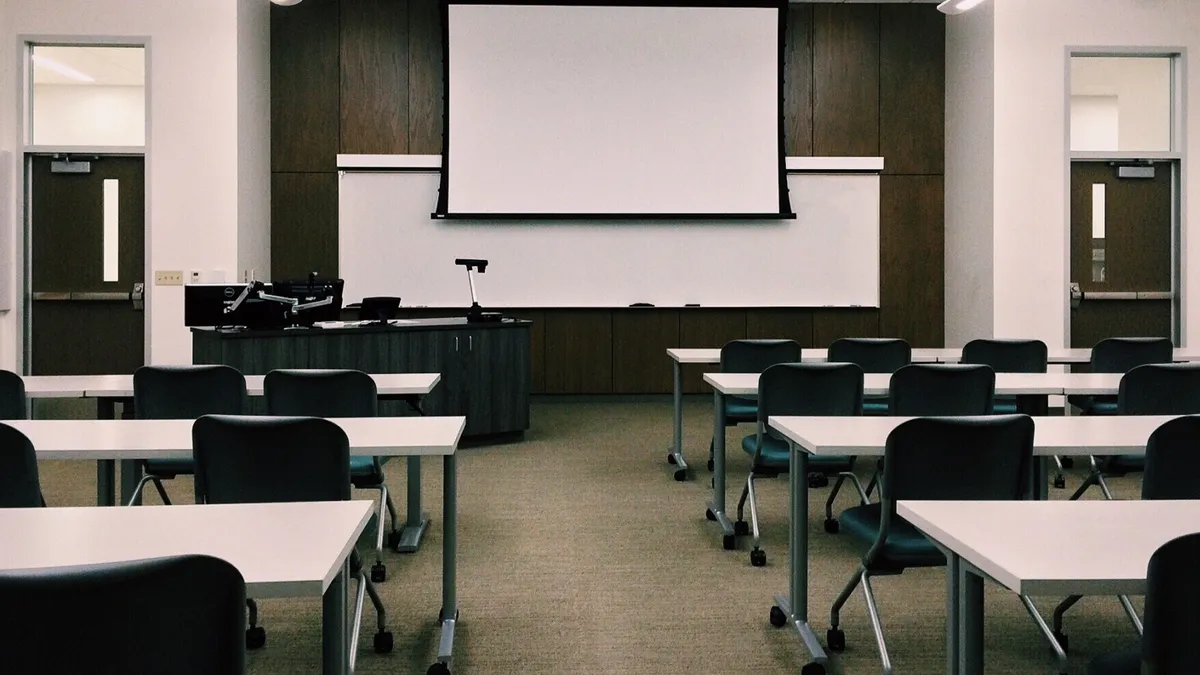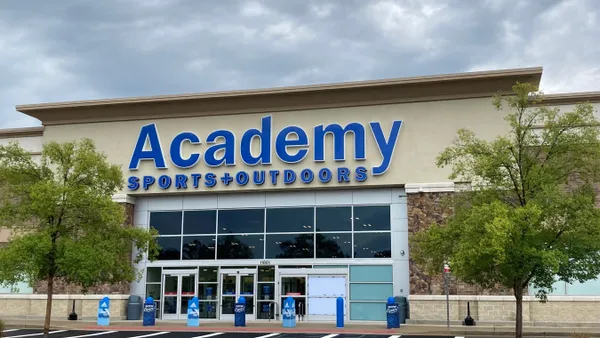The coronavirus pandemic has left many workers wondering how their jobs will change going forward. More remote work? More personal protective equipment? And supply chain managers have been flung into the thick of the pandemic, tasked with keeping goods flowing through the disruption of demand swings and capacity shifts in the freight market.
As a result, supply chain professors are planning their lessons differently this school year to prepare students to enter a post-pandemic workforce.
The University of Illinois stood up an online class alongside Coursera, an online learning platform for higher education, and the Centers for Disease Control and Prevention, titled, "Managing Supply Chain Disruption During COVID-19."
The pandemic has highlighted the importance of supply chain management to the everyday consumer, according to Nehemiah Scott, director of the supply chain management program at the University of Illinois at Urbana-Champaign.
"When they tried to buy toilet paper, it wasn't there," Scott said. "If they wanted to go buy a mask to protect themselves and their families, it was tough to find masks, at first."
"This is now a new skill and a new knowledge set that's going to be required."

Nehemiah Scott
Director of the supply chain management program at the University of Illinois at Urbana-Champaign
Scott developed the curriculum in 3.5 weeks. It focuses on supply chain disruption generally, but specifically looks at how the COVID-19 pandemic has disrupted global and domestic supply chains. The curriculum from the online class will also make its way into the material for the undergraduate classes that Scott teaches, he said.
"This is now a new skill and a new knowledge set that's going to be required, regardless of where they decide to go work in [the] supply chain management space," he said of handling supply chain disruption.
Scott's class will include a case study on the PPE supply chain, strategies companies have used to manage disruption — including stockpiling and changes to supplier relationships — and disruption theory, like the bullwhip effect. It is meant to highlight what has happened during the pandemic but be applicable to disruption generally, he said.
Beyond the one-off pandemic class
Going forward, changes to supply chain education will involve more than a single spin-off class. Supply chain educators told Supply Chain Dive they are planning to place greater emphasis on a number of issues moving forward.
For Scott, one of those issues will be communication.
Supply chain leaders need to know how to communicate with their team members, as well as different levels of the supply chain. This is the kind of skill that students will pick up at the mandatory internship they need to graduate, Scott said, or through participation in case competitions.
"How do you communicate those emergency response plans to your employees?" he said. "We want students now to start to learn about that."
But what students are doing during their internships has shifted a bit, according to Brian S. Fugate, the supply chain management department chair at the University of Arkansas.
"In the past, interns might have been focused on a long-term project, but now (at least near future) more of the internships are helping managers fight pandemic related fires (tactical execution, etc.)," Fugate wrote in an email. "In terms of 'how' the work is done, most have been and are remote. But that has made connecting them to other functions and higher execs easier (we are seeing more of that)."
Many companies already had emergency response plans, but they might not have considered a pandemic, he said. Students learn about how to keep a business open if it's considered essential, safety guidelines around social distancing, how truck drivers should interact with customers, and other measures related to reducing the number of infections.
"More of the internships are helping managers fight pandemic related fires."

Brian S. Fugate
Supply chain management department chair at the University of Arkansas
Lian Qi, an associate professor and the chair of the supply chain management department at Rutgers University, said the pandemic gives the university motivation to highlight existing parts of its curriculum, including risk management, manufacturing, sourcing and new business models.
The curriculum at Rutgers' risk management course, established about eight years ago, already covered pandemic management and worldwide disruption.
"This pandemic ... offers some realistic examples or cases to highlight the importance of risk management," Qi said, adding that the overall curriculum wouldn't change much.
The school will work to prepare students for a future where reshoring may become a reality. In the past, curriculum has focused largely on transportation and operations, as most U.S. companies (where their students largely end up working) outsource manufacturing.

"Now we need to emphasize more on manufacturing because we expect more companies will move some production ... back," Qi said, adding that companies will likely still keep some production overseas to benefit from the lower costs.
The introduction of manufacturing curriculum would include work on understanding production control and how a location change affects a company's cost.
The new business models that Qi expects the university to focus on are applications like Instacart that provide delivery modes to retailers that previously relied on brick-and-mortar sales.
"Now we need to emphasize more on manufacturing because we expect more companies will move some production ... back."

Lian Qi
Associate professor and the chair of the supply chain management department at Rutgers University
Another area that will get more focus is traceability and supply chain mapping, Fugate said.
"One of the things that's been happening recently in supply chain is understanding the full network," he said in an interview. "And that's because we have the data more than we've ever had it before."
Resources like FactSet Revere allow students to map supply chains through 12 tiers of suppliers for public companies, he said. But much of the work with this data happens at the PhD level. Using this information in undergraduate and graduate courses could be a helpful way to teach risk and resilience by allowing students to see what happens when one or two suppliers are disrupted and do more formal network analysis, Fugate said.
An industry focus on sustainability meant the topic was already starting to appear to an extent in the classroom, but it will be even more important after an event like the ongoing pandemic.
Another curriculum shift could sharpen the focus on agility, rather than traditional project management, by bringing in lessons from philosophies like Toyota Kata and implementing them throughout student projects, he said.
The future of supply chain education
Many schools are having discussions about how the curriculum might change going forward. Qi said conversations with the school's board members and consultants at Gartner would help to ensure the school is teaching the skills needed in industry.
"We're all sitting around having conversations about it," Fugate said about curriculum changes. "And I can't wait to see what happens. You know, I think a year from now, we'll have really good answers."
Early signs indicate an increased interest in supply chain talent coming out of higher education programs. Fugate said the university has seen "a much higher percentage of our students have already accepted full-time positions than in previous years."
And there is also interest from students, Qi said.
"We do have higher undergraduate enrollments," he said in a follow-up email to Supply Chain Dive. "We also have a better enrollment into our online master’s program. However, our in-person master’s program has a slight drop in terms of enrollment — because many admitted international students could not come. Some students still decided to go with us by taking remote courses, but some international students switched to universities in Asia."













